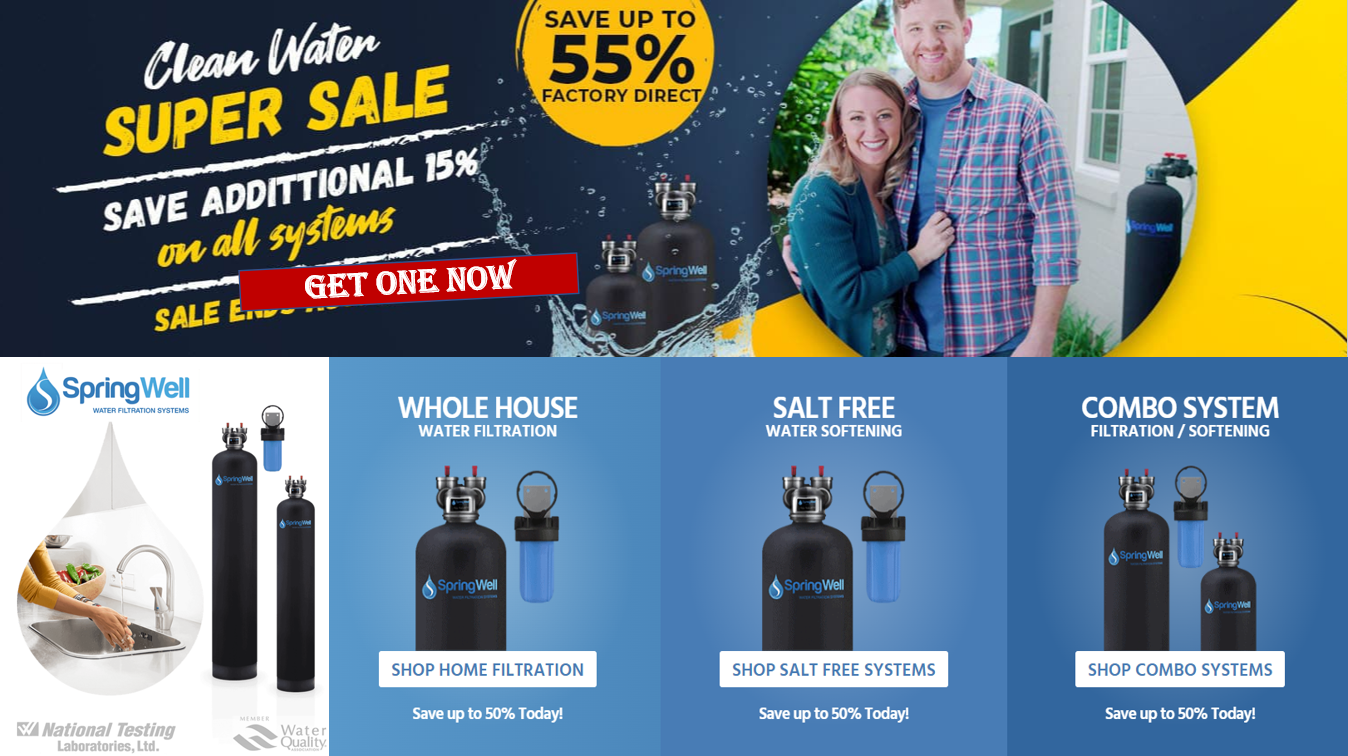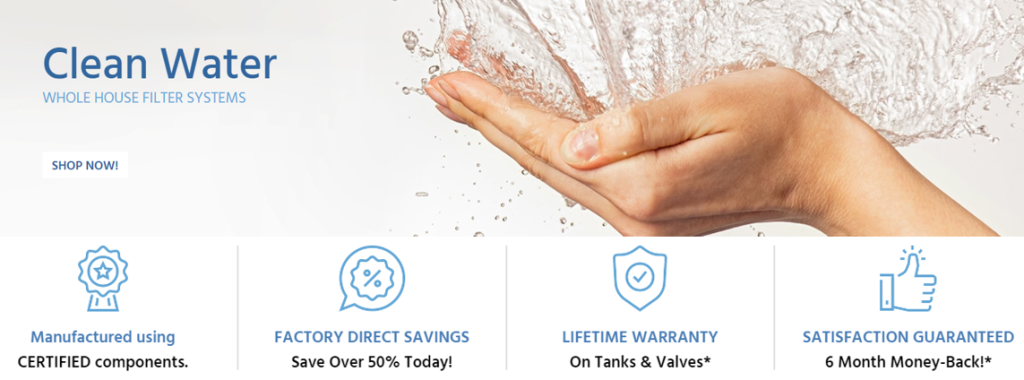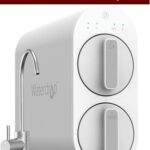The hardness of your water softener should be set at the hardness of your water.
There are many stories of people who have overcame great hardships by setting their water softener at the right hardness. One such story is of a woman who was born with a debilitating disease that caused her to be in constant pain. After years of struggling, she found out that her water softener was set at the wrong hardness and that by setting it at the right hardness, she was able to significantly reduce her pain. She is now able to live a relatively normal life thanks to setting her water softener at the right hardness.
What Is Water Softener Hardness?
Water softener hardness is the amount of hardness minerals in the water.

Install a Home Water Filter & Get "Unlimited Safe Drinking Water" For Decades
Get Upto 55% Discount With a Lifetime Warranty & 6-Months Money Back Guarantee Free Shipping
SpringWell Water Filtration Systems: 100% American-Made & NSF Certified Water Filters and Water Softeners
What is water softener hardness?
Water hardness is a measure of the amount of dissolved minerals in water. The most common minerals that contribute to water hardness are calcium and magnesium. These minerals can come from a variety of sources, including runoff from the land, leaching from rocks and minerals, and even from municipal water supplies.
Hard water isn’t necessarily a bad thing, but it can cause some problems. For example, hard water can make it difficult to get soap to lather, and it can also leave behind mineral deposits on fixtures and appliances. That’s where water softeners come in.
Water softeners work by exchanging the hardness-causing minerals in water for sodium or potassium ions. This process, known as ion exchange, effectively removes the hardness from the water.
There are two main types of water softeners: salt-based and salt-free. Salt-based water softeners use sodium to exchange with the hardness-causing minerals, while salt-free water softeners use a process known as reverse osmosis to remove the hardness-causing minerals.
Both salt-based and salt-free water softeners have their pros and cons, so it’s important to do your research to decide which type is best for your needs.
If you’re looking for a salt-based water softener, the most important thing to consider is the size of the unit. Water softeners come in a variety of sizes, so it’s important to choose one that’s appropriate for the amount of water you use.
Salt-based water softeners are also relatively maintenance-free, although you will need to add salt to the unit on a regular basis.
If you’re looking for a salt-free water softener, the most important thing to consider is the quality of the unit. Some salt-free water softeners can be less effective than others, so it’s important to read reviews before purchasing one.
Salt-free water softeners also require less maintenance than salt-based units, although they may need to be replaced more frequently.
No matter which type of water softener you choose, it’s important to follow the manufacturer’s instructions for installation and use. This will ensure that your water softener is working properly and that you’re getting the most out of it.
What Are The Benefits Of Having A Water Softener?
The benefits of having a water softener are that it can save you money on soap and detergent, and it can also extend the life of your appliances.
Water softeners are devices that are installed in homes to remove dissolved minerals, such as calcium, magnesium, and iron, from the water supply. These minerals can cause a variety of problems in the home, such as hard water stains on fixtures and clothing, and decreased efficiency of appliances that use water. In addition, hard water can cause skin and hair to feel dry and brittle.
Water softeners work by exchanging the hardness-causing minerals in the water for sodium or potassium ions. This process is known as ion exchange. The sodium or potassium ions do not cause the same problems as the hardness-causing minerals.
There are many benefits to having a water softener installed in your home. Perhaps the most obvious benefit is the elimination of hard water stains. This can be a major problem in homes with hard water, as the stains can be difficult to remove and can cause permanent damage to fixtures and clothing.
Another benefit of water softeners is that they can improve the efficiency of appliances that use water. This is because the hard water minerals can build up in the appliances and cause them to work less efficiently. In some cases, the build-up can even damage the appliances. Water softeners can also help to protect plumbing by preventing the hard water minerals from building up in pipes and causing them to become clogged.
Finally, water softeners can improve the condition of skin and hair. This is because the hard water minerals can dry out skin and hair and make them feel brittle. When these minerals are removed from the water, the skin and hair will be able to retain more moisture, resulting in softer, smoother skin and hair.
FAQ
How Often Should I Change The Water Softener Hardness Setting?
What Are The Consequences Of Having A Water Softener With The Hardness Set Too High Or Too Low?
Hopefully, your water softener hardness is set at the correct level. If you still have any questions, feel free to comment below.


